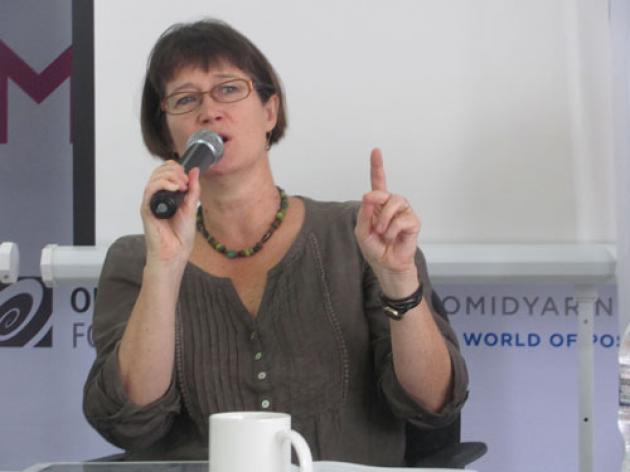MCRB report aims at boosting sustainable tourism

Myanmar will not reap long-term benefits in opening up the country for tourists, if there is lack of policy to safeguard the environment, society and human rights, said a report.
Released Friday, the report entitled "Myanmar Tourism Sector-wide Impact Assessment" said an influx of tourists can negatively impact Myanmar’s tangible and intangible cultural heritage.
"There is still scope to develop Myanmar as a destination for smaller numbers of high-spending tourists looking for an experience that makes the country special. A mass market strategy that generates negative impacts on Myanmar’s environment and culture could kill the goose that lays the golden egg soon after the journey begins," says the report.
Thi Thi Thein, sector-wide impact assessment manager of the Myanmar Centre for Responsible Business, said the study mainly focused on famous tourist destinations such as Yangon, Mandalay, Bagan, Ngwe Saung Beach, Chaung Tha Beach, Thaunggyi, Inle Lake, and Kyaikhteeyoe Pagoda with land issues, job creation, gender, consultations with local communities, safety, as well as the environment the key concerns.
Vicky Bowman, MCRB director, said the report was the second in its SWIA series in partnership with its co-founders, the Danish Institute of Human Rights and the Institute of Human Rights and Business.
"It took just over a year to complete this report with the research period taking 3-4 months. MCRB has specifically trained the researchers for the job. We met with government authorities and tourism businesses and communities in January. The minister himself was very supportive as the ministry has a policy which we support," she said.
According to Bowman, the only obstacle MCRB faced while doing research was interviewing some hotel employees as their managers did not want them to interview their staff privately.
"Part of the problem is that when you visit a place for a short time, you do not see everything that is happening," she said.
The report pointed out that hotel zones could be a driver for conflicts as its negative impacts relate to the impacts on livelihoods, including the opportunities for future community involvement in tourism, land rights, environmental conservation, and transparency.
The report suggests that the government fully implement the responsible tourism policy and the policy on community involvement in tourism; strengthen the regulatory and policy framework for social and environmental issues; adopt better regulations for the tourism sector; build the capacity of policy, regulatory and inspection authorities; raise awareness of relevant regulatory and policy frameworks; increase transparency; adopt a zonal planning framework for existing and emerging tourist destinations and undertake strategic impact assessments for large developments; further encourage the participation of local communities in tourism development; and finally strengthen the processes for judicial and non-judicial remedy.
The companies, according to the report, are also asked to throw their supports behind the implementation of the tourism master plan and adhere to human rights practices. It suggested that they take collective actions to address environmental, social and human rights issues and strengthen the tourism organisation.
The civil society is also included in the report as they can play a vital role in reporting negative impacts on tourism and engage in activities related to tourism development.
The report highlighted the fact that both the infrastructure and society is poorly prepared to receive a large number of foreign tourists, as well as an expansion of domestic pilgrimage and tourism. It urged the government to learn from other countries, rather than focusing mainly on numbers of tourist arrivals.
Last year, Myanmar received more than three million tourists, up from 2 million in 2013, and the target for 2015 has been set at five million. MCRB however insisted that the figures may include day visitors, business people, returning Myanmar nationals and others entering on a tourist visa, in addition to genuine tourists spending over 24 hours in the country.
Tulika Bansal, DIHR’s human rights and business adviser, said the report findings have been shared with Western-based tour operators and businesses that have already invested or about to enter the Myanmar market.
